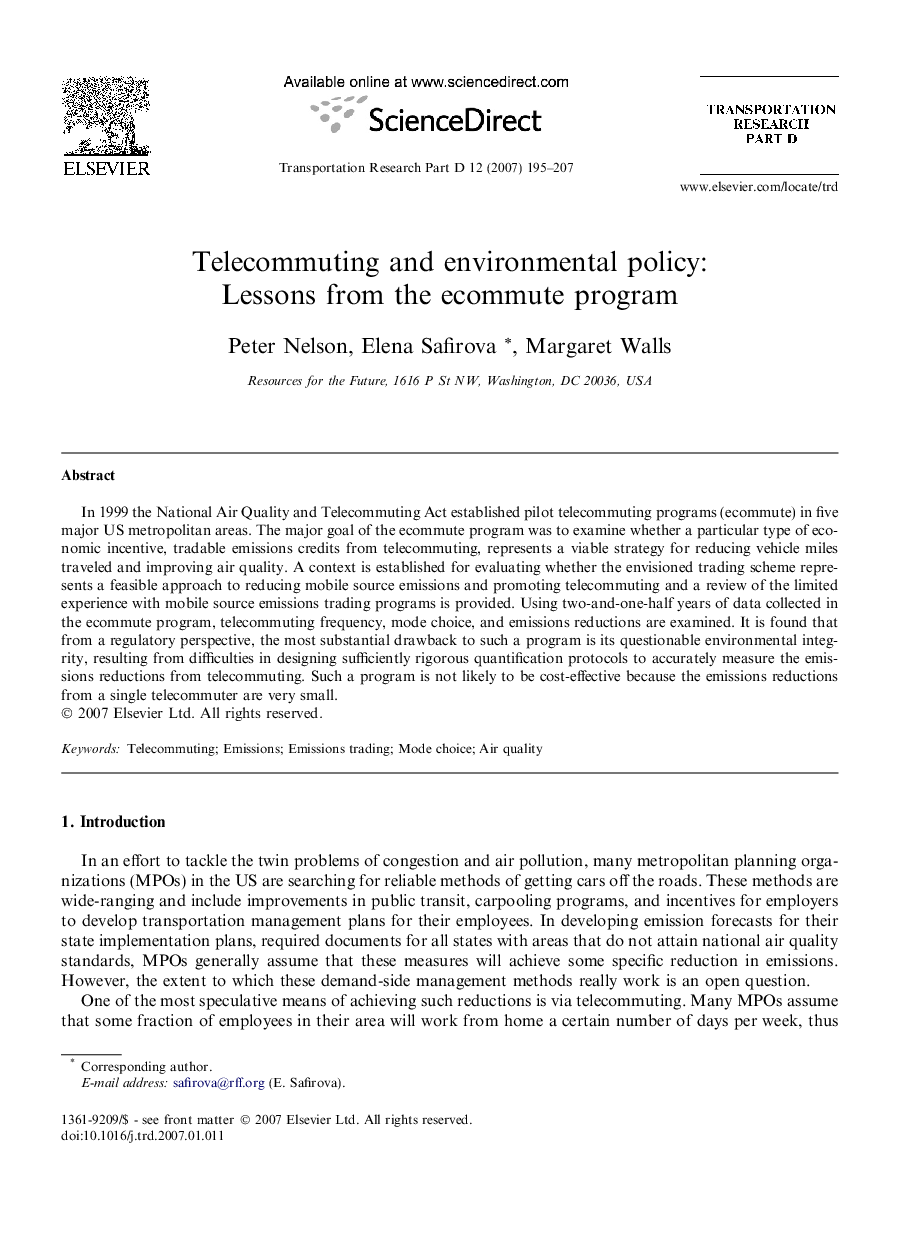| Article ID | Journal | Published Year | Pages | File Type |
|---|---|---|---|---|
| 1066302 | Transportation Research Part D: Transport and Environment | 2007 | 13 Pages |
In 1999 the National Air Quality and Telecommuting Act established pilot telecommuting programs (ecommute) in five major US metropolitan areas. The major goal of the ecommute program was to examine whether a particular type of economic incentive, tradable emissions credits from telecommuting, represents a viable strategy for reducing vehicle miles traveled and improving air quality. A context is established for evaluating whether the envisioned trading scheme represents a feasible approach to reducing mobile source emissions and promoting telecommuting and a review of the limited experience with mobile source emissions trading programs is provided. Using two-and-one-half years of data collected in the ecommute program, telecommuting frequency, mode choice, and emissions reductions are examined. It is found that from a regulatory perspective, the most substantial drawback to such a program is its questionable environmental integrity, resulting from difficulties in designing sufficiently rigorous quantification protocols to accurately measure the emissions reductions from telecommuting. Such a program is not likely to be cost-effective because the emissions reductions from a single telecommuter are very small.
